

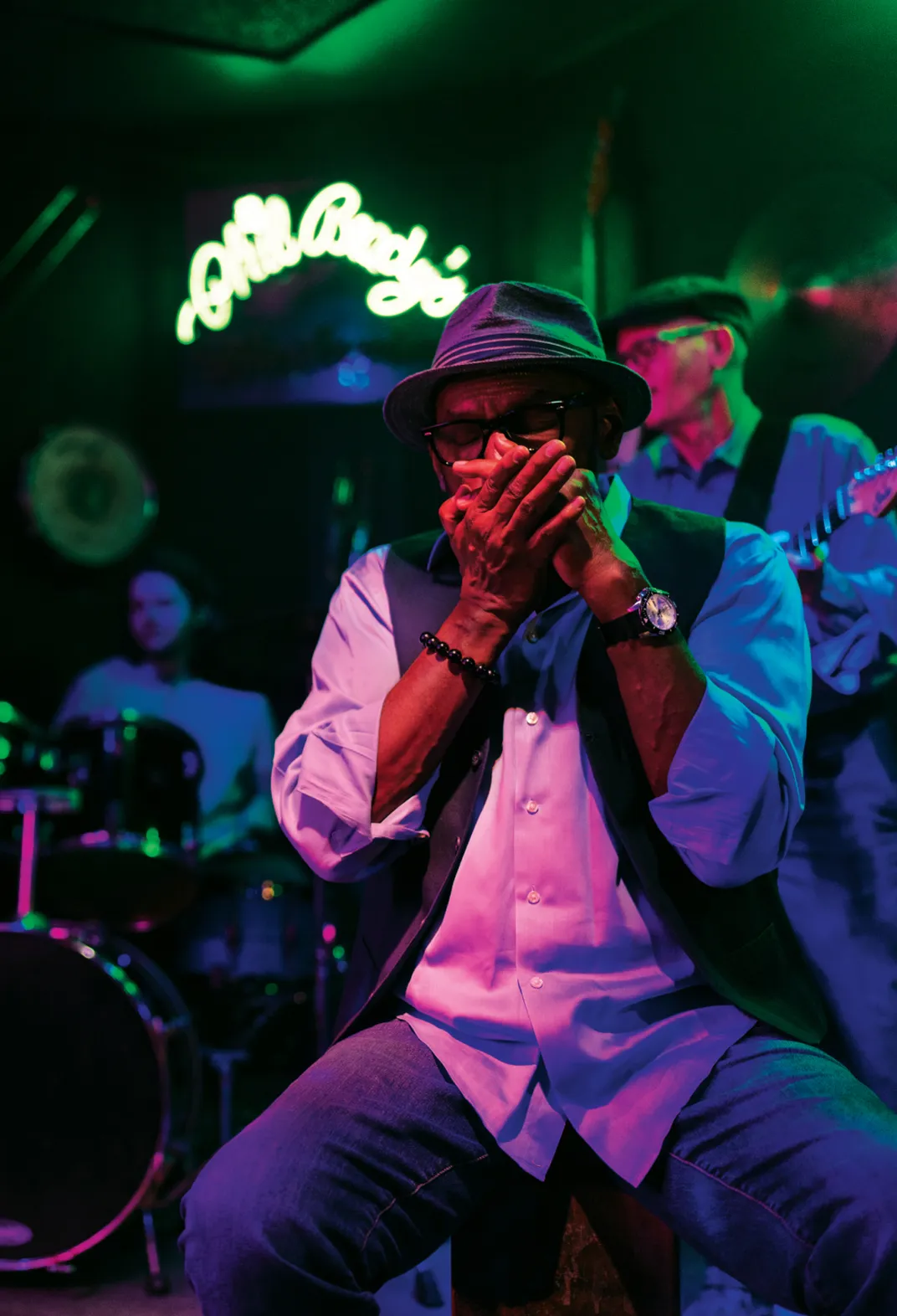
Music
Louisiana’s Live Music Venues
Click to read more
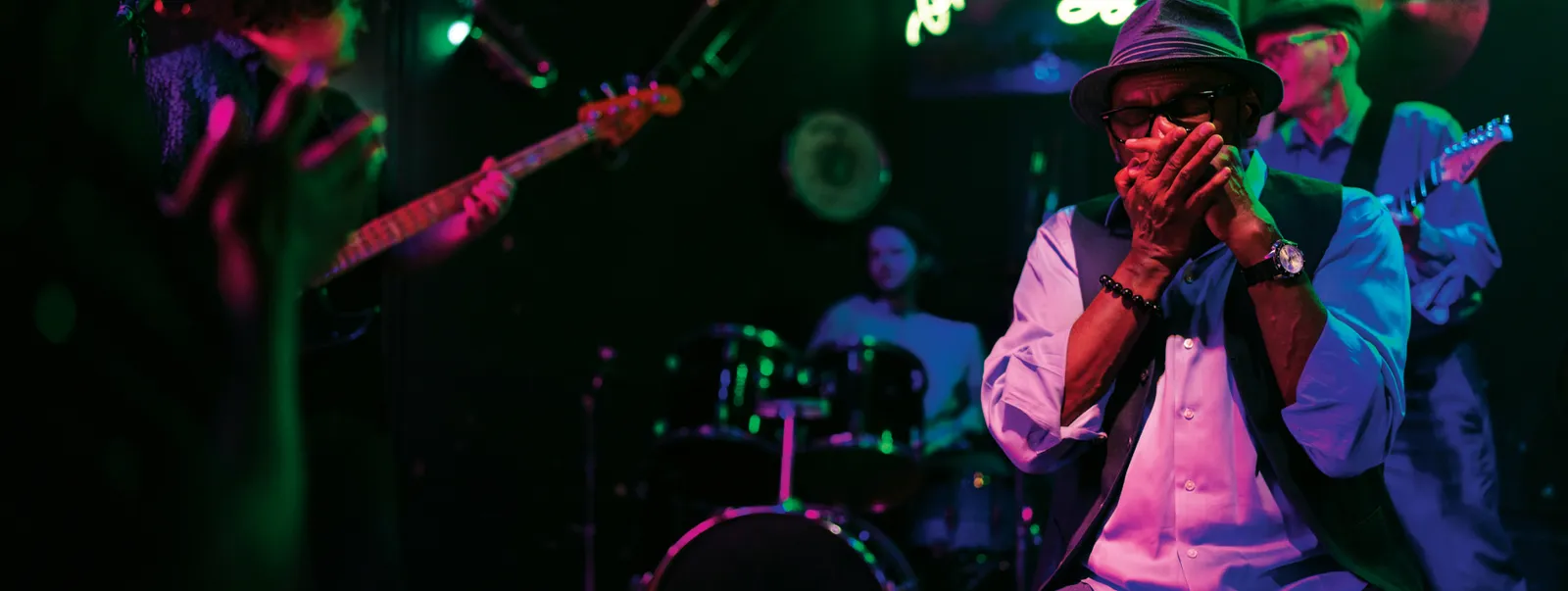
Music
Louisiana’s Live Music Venues
There’s no better place to immerse yourself in live music than in the state that birthed multiple musical genres—think Cajun, zydeco, Acadian swamp pop, and jazz—as well as legendary musicians like the Neville Brothers and Fats Domino, who’ve left their marks on everything from rhythm and blues to rock ‘n’ roll. The sounds of New Orleans jazz permeate all corners of its namesake city, including popular spots like the French Quarter’s historic Preservation Hall and the intimate Spotted Cat, while Cajun tunes pour forth from dance halls, like Lafayette’s Blue Moon Saloon. Pair mouthwatering seafood gumbo with traditional two-step dancing at Buck and Johnny’s zydeco brunch in Breaux Bridge, a small city known for its funky music scene.

Food & Drink
Louisiana’s Unique Flavors
Click to read more
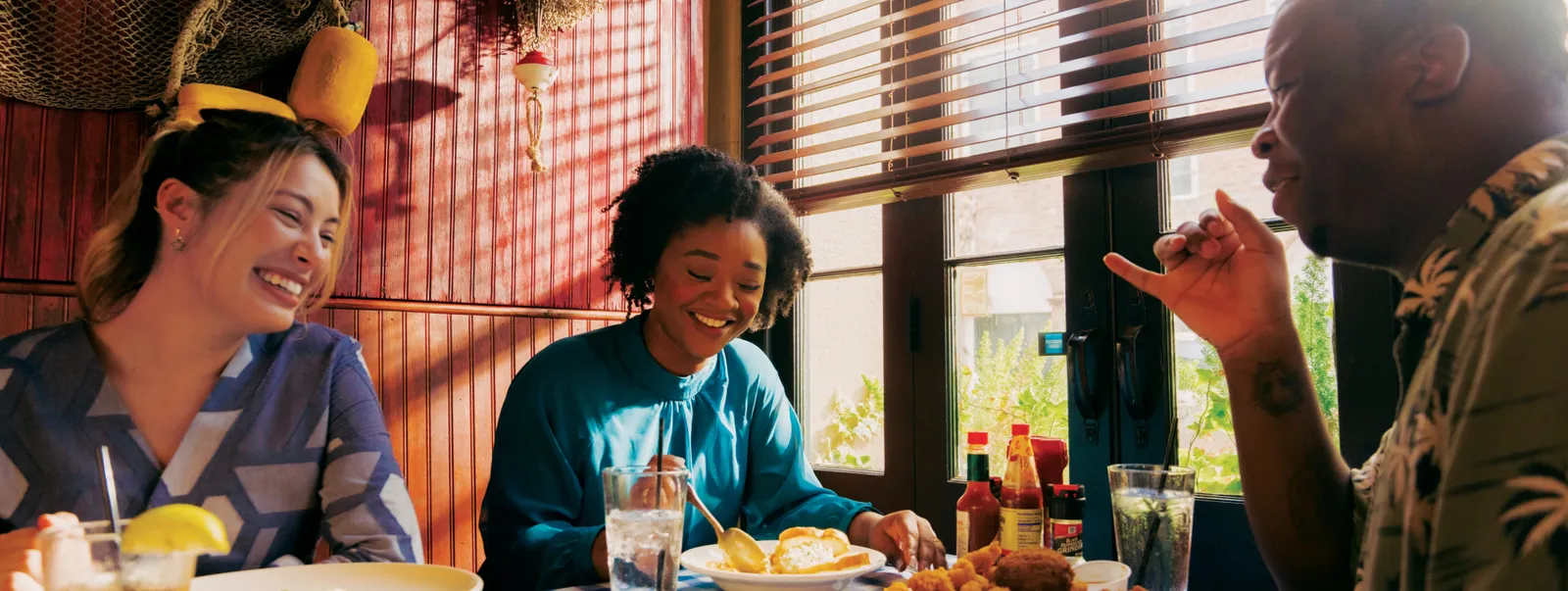
Food & Drink
Louisiana’s Unique Flavors
A confluence of cultures shines through in Louisiana’s rich culinary heritage, creating a fusion of flavors found nowhere else. This combination of French, Spanish, German, African, Caribbean, Vietnamese, and Italian influences has resulted in iconic dishes ranging from spicy jambalayas to hearty étouffée, while Cajun and Creole cuisines—each distinctly different—weave together zesty seasonings with regional ingredients, including andouille sausage and fresh Gulf seafood. In fact, as the country's second-largest seafood supplier, the state boasts a bounty of fresh shrimp, oysters, and famous Louisiana crawfish, a crustacean that is more than a local delicacy, it’s a way of life. Refreshing libations incorporating local produce are the norm at craft breweries, distilleries, and wineries from Shreveport south to Thibodaux.
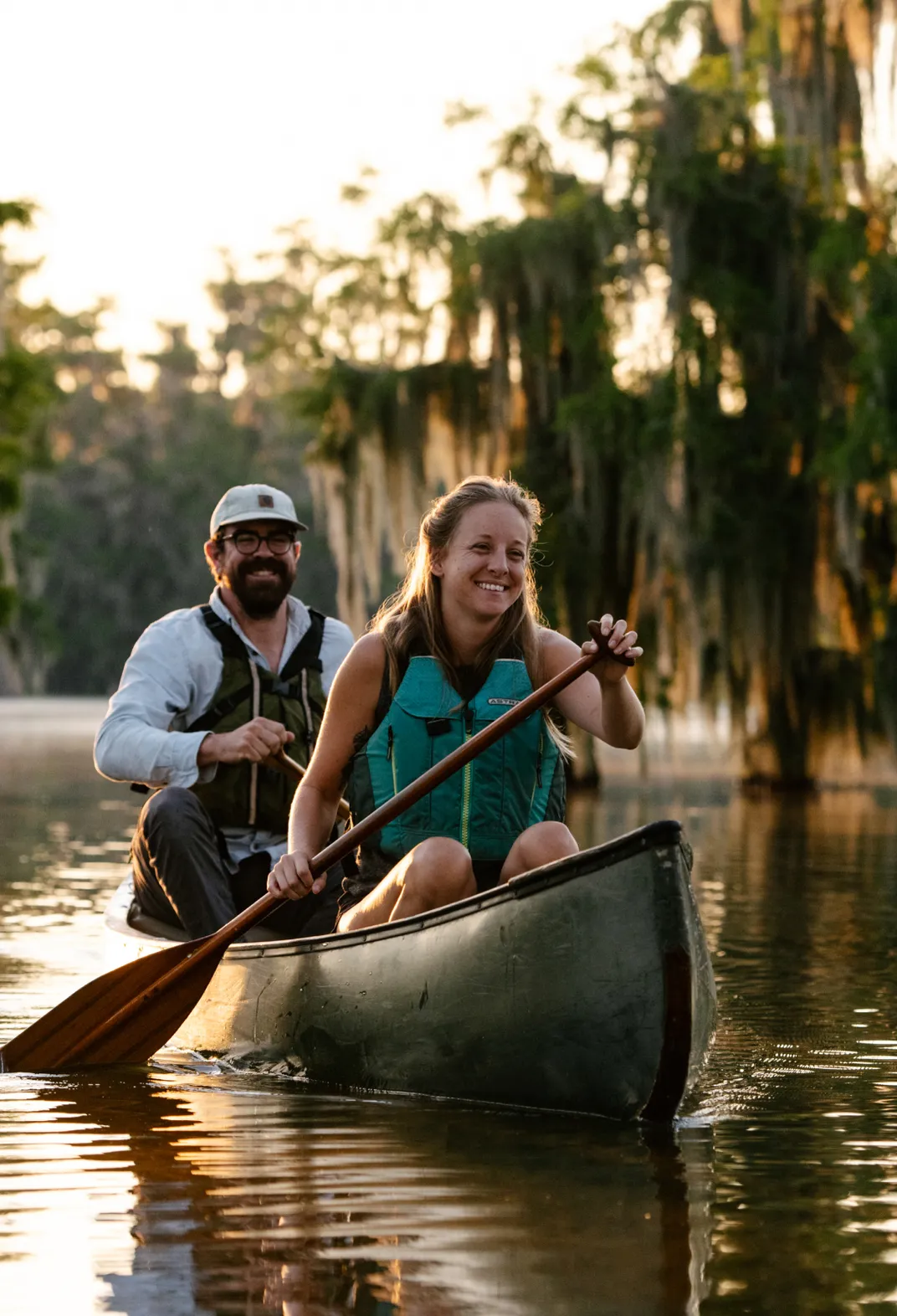
Outdoors
Louisiana’s State Parks
Click to read more
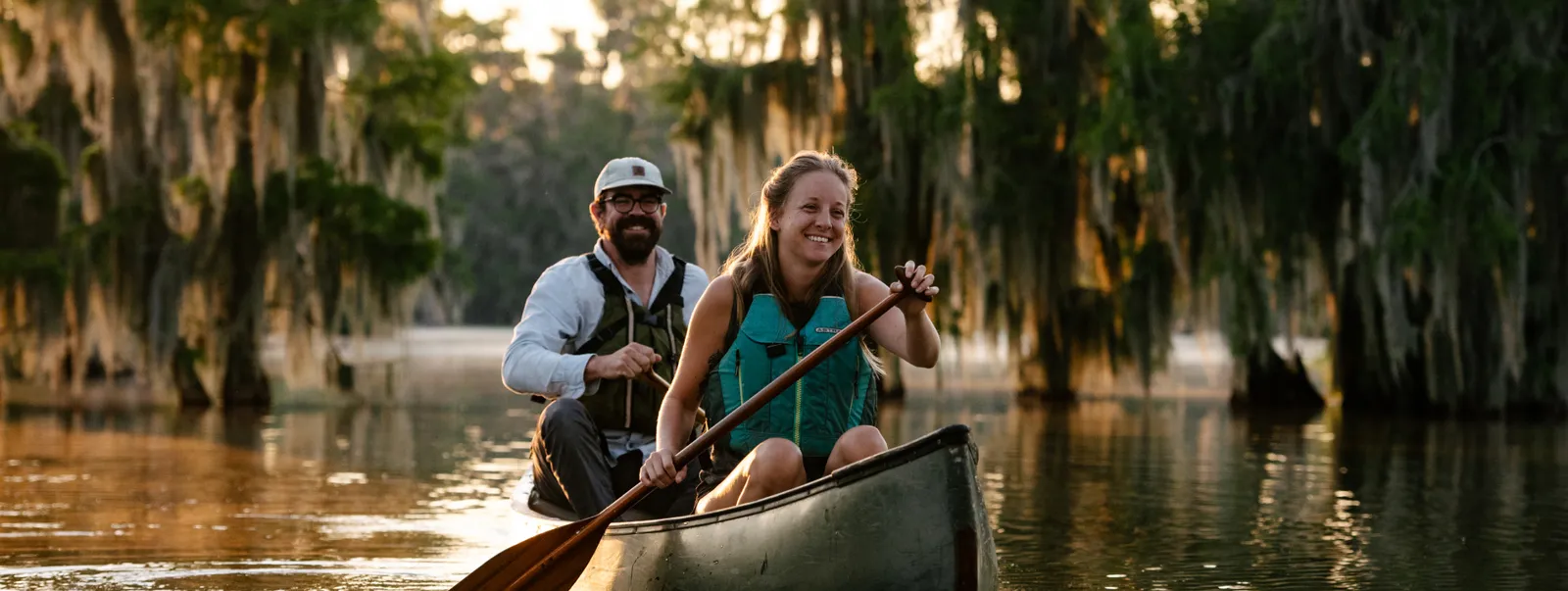
Outdoors
Louisiana’s State Parks
With 21 state parks and preserves, Louisiana’s outdoor enthusiasts have a wealth of recreational activities to choose from. You might be upstate, paddling toward Chemin-a-Haut State Park’s massive, centuries-old “Castle Tree” one day, and riding horseback through Lake Bistineau State Park’s cypress forest the next. Whether it’s mountain biking among the remote swamplands of Bogue Chitto State Park, meandering the nature trails of south central Louisiana’s Chicot State Park—home to the state arboretum—or angling for largemouth bass at North & South Toledo Bend State Parks, each known for their reservoir waters, the opportunities to experience Louisiana’s natural offerings are endless. Extend your stay and enjoy some time under the stars at one of the state's many overnight park options, from camping lakeside at Lake Bruin State Park to gathering around the fireplace at your Palmetto Island cabin.
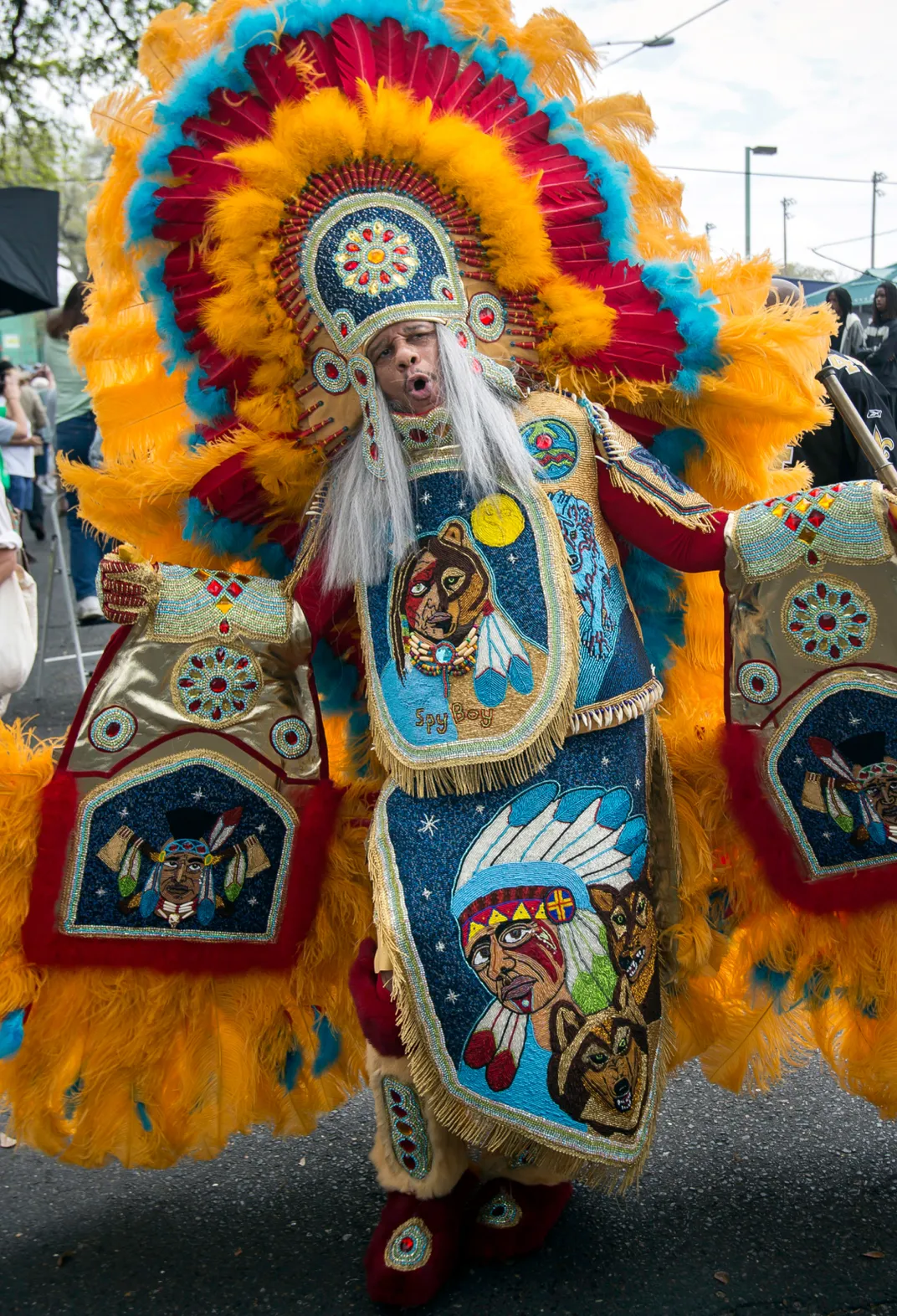
Culture
Louisiana’s Unique Festivals
Click to read more
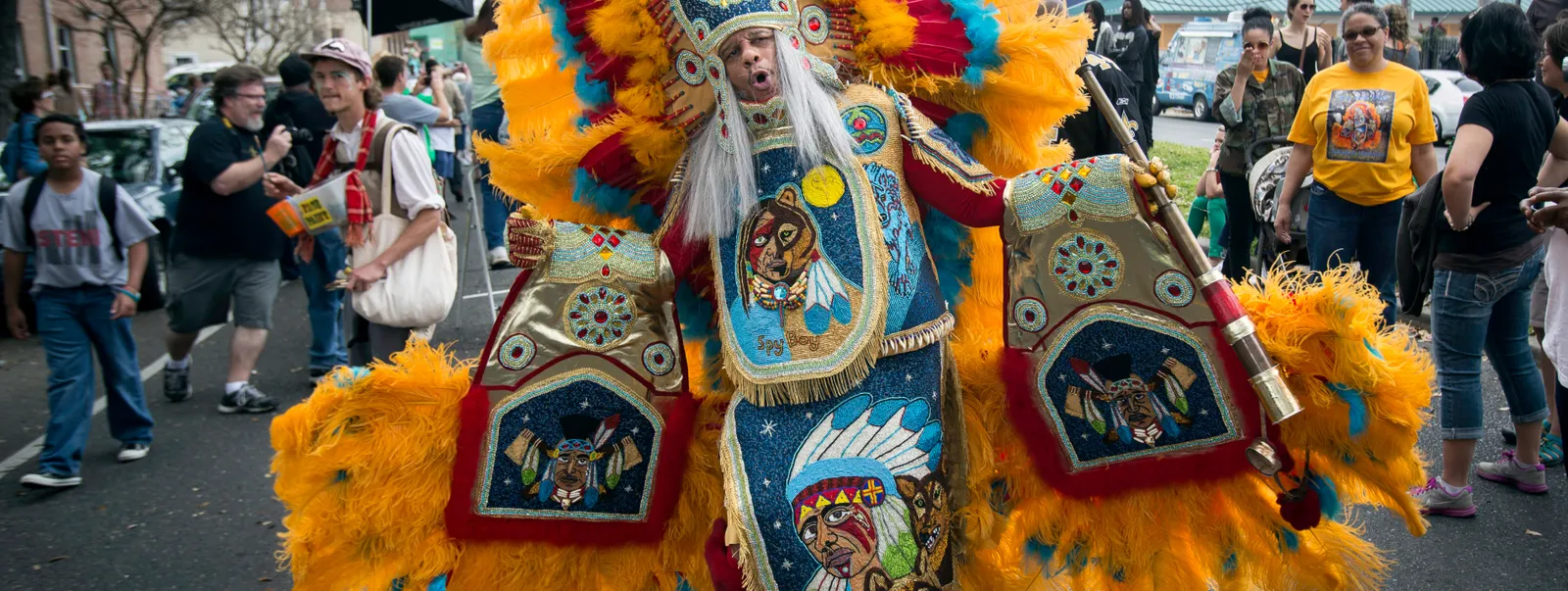
Culture
Louisiana’s Unique Festivals
Brimming with over 400 annual festivals and fairs, Louisiana’s “Festival Capital of the World” nickname is a well-earned one. Each celebration highlights a different regional aspect, whether it’s Creole cuisine or zydeco bands. While the ever-popular New Orleans Jazz & Heritage Festival fills the “Crescent City” with acclaimed performers from around the globe, Shreveport’s Red River Revel Arts Festival showcases more than 200 visual and performing artists across multiple mediums. Festival International de Louisiane honors Cajun and French culture with everything from musical jams to craft markets. Inspired by French privateer Jean Lafitte, Lake Charles’ Louisiana Pirate Festival taps into the state’s quirkier side, while the Zwolle Tamale Fiesta pays homage to the area’s Spanish and Native American heritage. In Lafayette, Festival International de Louisiane draws in a global audience to celebrate the French heritage of the region and the connections between French-speakers all over the world.

History & Heritage
Louisiana’s Can’t-Miss Museums
Click to read more

History & Heritage
Louisiana’s Can’t-Miss Museums
A state this rich in history needs ample ways to explore it. Thankfully, Louisiana is home to over 200 museums, nine of which are official state repositories—including one in the Big Easy devoted to jazz. New Orleans’ ever-expanding National WWII Museum tells the story of the “war that changed the world” through multiple galleries and displays, while Monore’s Biedenharn Museum & Gardens is home to flowering plants and the first-ever Coca-Cola bottler. Native Americans created the semi-elliptical earthworks of Poverty Point, a designated UNESCO World Heritage site, over three thousand years ago. For more recent history, the Louisiana Civil Rights Trail traces this equal rights movement’s deep local roots, including the nation’s first bus boycott in Baton Rouge.
Continue planning your visit at







